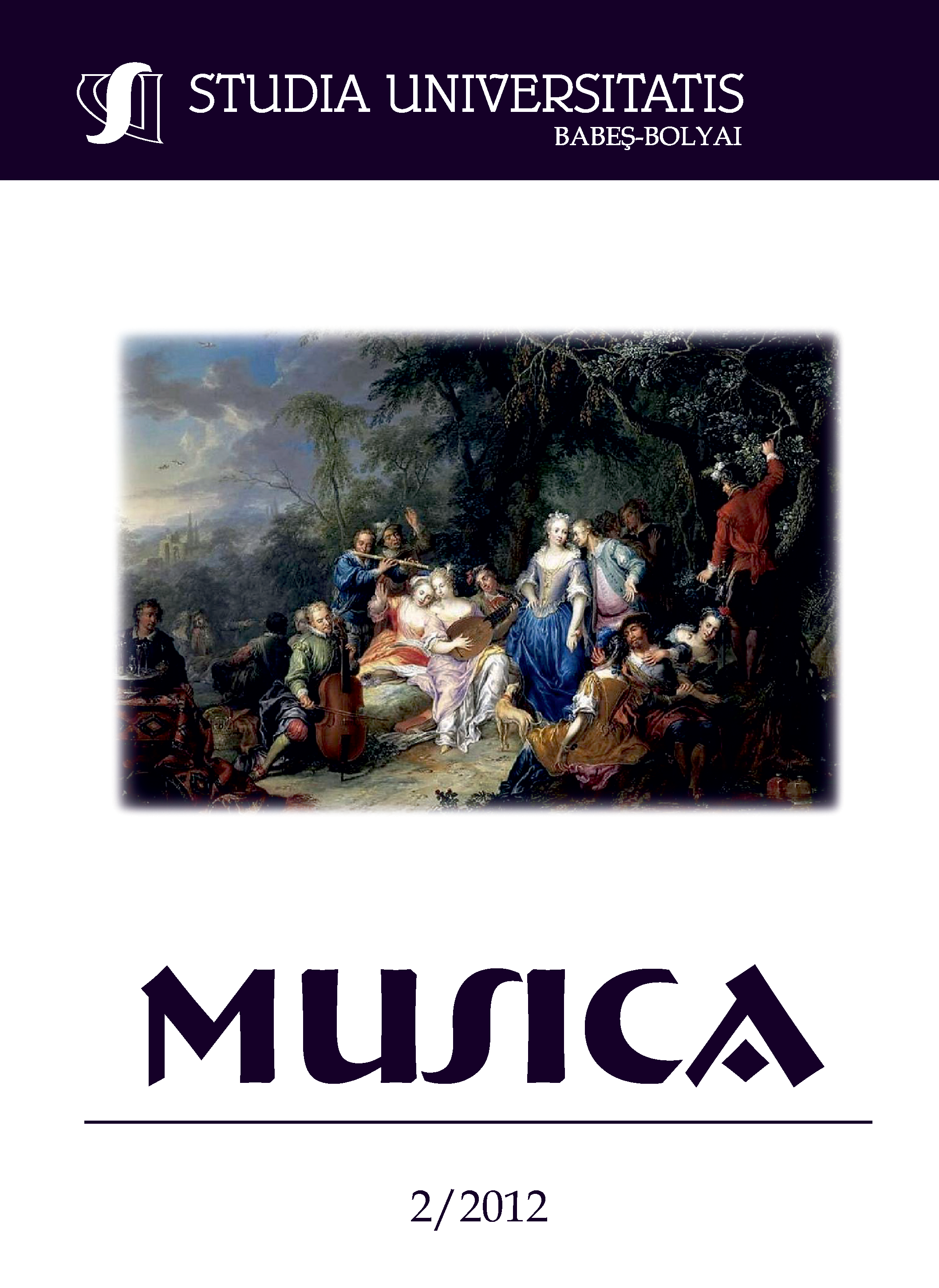FRANZ SCHUBERT AND THE MUSICAL ROMANTICISM
Keywords:
Romanticism, conveyance of emotions, musical freedom, rich style, Franz SchubertAbstract
The role of music in Romanticism became crucial precisely due to the mysterious and inexplicable effect it had over the human being. This era was one of the richest and most prolific ones in the entire history of music. Most musicians of that age possessed a vast cultural background, often being poets, composers and performers at the same time. Composer Franz Schubert reunites his art the subtle text interpretation with the melodic, purely musical ideal of shaping melody. By way of the lyrical tone of his melodies, he is considered to be one of the most talented composers of the 19th century. Although he died at a very young age, he left behind a great artistic legacy.
References
Fábián, László, Franz Schubert életének krónikája (The Chronicle of the Life of Franz Schubert), Zeneműkiadó Vállalat, Budapest, 1975.
Gibbs, Christopher Howard, The Life of Schubert, Cambridge University Press, 2000.
McKay, Elizabeth Norman, Franz Schubert: Biography, Oxford University Press, Oxford, 1997.
Meszlényi, Róbert, Hangverseny kalauz II. (Musical Guide II.), Rózsavölgyi és Társasága Kiadása, Budapest, 1938.
Michels, Ulrich, SH atlasz- Zene- (Music Atlas), Springer Hungarica Kiadó, Budapest, 1994.
Molnár, Antal, Népszerű zeneesztétika (Popular Musical Aesthetics), Széchenyi Irodalmi és Művészeti Részvénytársaság Kiadása, Budapest, 1940.
Molnár, Antal, A zeneművészet könyve (The Art of Music), Dante kiadó, Budapest, 1923.
Pécsi, Géza, Kulcs a muzsikához (Key to Music), Kulcs a muzsikához kiadó, Pécs, 2003.
Petzold, Richard, Franz Schubert - Sein Leben in Bildern, Franz Schubert élete képekben (Franz Schubert’s Life in Pictures), Zeneműkiadó V., Budapest, 1955.
Stanley, John, A klasszikus zene, Mesterek és mesterművek a kezdetektől napjainkig (Classical Music, The Great Composers and their Masterworks), Kossuth kiadó, Budapest, 2006.
Szabolcsi, Bence, Régi muzsika kertje (The Garden of Ancient Music), Zeneműkiadó, Budapest, 1957.
Szabolcsi, Bence, A zene története (The History of Music), Zeneműkiadó Vállalat, Budapest, 1958.
Székely, Júlia, Schubertiáda (Schubertiaden), Magvető Könyvkiadó, Budapest, 1968.
Tallián, Tibor, Aki elveszti életét, megtalálja azt- 200 éve született Franz Schubert (The One Who Loses his Life Will Find it – 200 Year Anniversary of Franz Schubert’s Birth) - article, in Muzsika 1997. November issue, No. 11.
Tóth, Dénes, Hangversenykalauz (Guide to Symphonic Music) I-II, Zeneműkiadó Vállalat, Budapest, 1959.
Tóth, Sándor, Schubert Mária himnusza Schubert’s Mary Hymn), Új ember (New Man – Catholic Weekly), issue 37, 2004.09.12.
http://www.zeneforum.hu/hangversenyreszlet.asp, 03.04.2008.
http://www.karpatinfo.net/article37566.html, 04.05.2008.
http://www.papiruszportal.hu/site/?lang=1&f=&p=9&n=983, Lehotka Ildikó, 24.09.2006.
Downloads
Published
How to Cite
Issue
Section
License
Copyright (c) 2012 Studia Universitatis Babeș-Bolyai Musica

This work is licensed under a Creative Commons Attribution-NonCommercial-NoDerivatives 4.0 International License.



